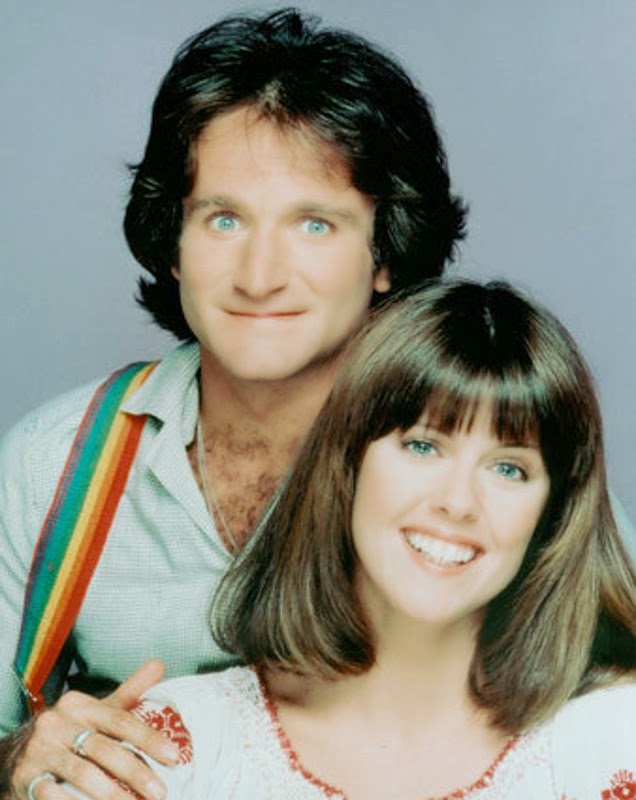Veteran film and
television comedic actor Robin Williams was found dead in his home in Tiburon , Calif.
The cause of death
is believed to be suicide via asphyxiation, according to the Tiburon coroner’s
office.
According to his
publicist, who confirmed the news, the actor had been battling depression of
late and recently entered 12-step rehab for drug abuse.
His wife Susan
Schneider said in a statement: “I am utterly heartbroken. On behalf of Robin’s
family, we are asking for privacy during our time of profound grief. As he is
remembered, it is our hope the focus will not be on Robin’s death, but on the
countless moments of joy and laughter he gave to millions.”
The Marin County
Sheriff’s Office received a 911 call from Williams’ residence on Monday at
11:55 a.m. reporting the actor had been found unconscious and was not
breathing. The paramedics arrived shortly thereafter at 12 p.m. and pronounced
him dead at 12:02 p.m.
Williams was last
seen alive by his wife at 10 p.m. on Sunday.
An autopsy is
scheduled for Tuesday, Aug. 12, at the Marin County Coroner’s Office.
At ease in roles
that emphasized on drama as well as comedy, he won a best supporting actor
Oscar in 1997 for “Good Will Hunting.” In addition, he won two Emmys,
four Golden Globes, five Grammys and two Screen Actors Guild Awards.
His showbiz
career was bookended by TV roles: his breakout performance as an alien on ABC
sitcom “Mork & Mindy” in 1978 and his return to TV last season on CBS’ “The
Crazy Ones” opposite Sarah Michelle Gellar, though the comedy was cancelled
after one season.
His most recent
film was “The Angriest Man in Brooklyn ”; other
recent roles included President Dwight D. Eisenhower in “Lee Daniels’ The
Butler.” “Night at the Museum: Secret of the Tomb” will be released
December 19.
Williams often
spoke publicly about his decades-long bout with substance abuse.
“It’s (addiction) —
not caused by anything, it’s just there,” he told ABC’s Diane Sawyer in 2011.
“It waits. It lays in wait for the time when you think, ‘It’s fine now, I’m
OK.’ Then, the next thing you know, it’s not OK. Then you realize, ‘Where am I?
I didn’t realize I was in Cleveland .'”
Born in Chicago to a former model and an auto-industry executive,
Robin McLaurin Williams attended high school and community college in Marin
Country before graduating from the Juilliard
School
While “Mork &
Mindy” was still on the air, he starred in Robert Altman’s unusual adaptation
of “Popeye.” He next feature roles came as the title character in John Irving
adaptation “The World According to Garp” and as Russian on the loose in Manhattan in Paul Mazursky’s “Moscow
on the Hudson .”
He took his career
to the next level with a bevy of lead parts in critically acclaimed movies
beginning in the late 1980s, including “Good Morning, Vietnam ,” “Dead
Poets Society” and “The Fisher King,” all of which garnered him Oscar
nominations. But it wasn’t until his performance in “Hunting,” from a
screenplay by Ben Affleck and Matt Damon, that he earned his only win, for
supporting actor, in 1998.
For all his success
as a comedy star, Williams’ performance as a nurturing psychotherapist in “Good
Will Hunting” proved he had a flair for dramatic roles as well. Williams also
scored in another dramatic role as a man of medicine, playing a character based
on neuroscientist Oliver Sacks in the 1990 movie “Awakenings.” (In a film with
a very different tone, he also played a doctor — one who’ll do anything to
cheer up his patients — in hit comedy “Patch Adams.”) Francis Ford Coppola’s
“Jack” posed an interesting challenge for the actor, as he was essentially
playing a boy trapped in a man’s body.
But Williams will
be remembered best for the parts that exhibited his improvisational comedy,
which he delivered with near-manic intensity. His genius for over-the-top
characters was displayed in the early 1990s everywhere from the cross-dressing
nanny in “Mrs. Doubtfire” to animated roles like the genie in “Aladdin.” There
was also the hilarity of “La Cage Aux Folles” remake “The Birdcage.”
During the ’90s he
also starred in boardgame fantasy “Jumanji,” played an adult Peter Pan opposite
Dustin Hoffman in Steven Spielberg’s “Hook” and showed a wistfully romantic
side in 1998’s “What Dreams May Come.”
 More recently, he
played a secretly twisted murderer in Christopher Nolan’s Alaska-set thriller
“Insomnia” alongside Al Pacino as well as Theodore Roosevelt in the very
successful Ben Stiller comedy “Night at the Museum” and “Night at the Museum:
Battle of the Smithsonian.” The “Happy Feet” animated penguin comedy allowed
him to let loose his delightfully manic side, while Bobcat Goldthwait’s 2009
“World’s Greatest Dad” was far more interesting than the title would suggest.
More recently, he
played a secretly twisted murderer in Christopher Nolan’s Alaska-set thriller
“Insomnia” alongside Al Pacino as well as Theodore Roosevelt in the very
successful Ben Stiller comedy “Night at the Museum” and “Night at the Museum:
Battle of the Smithsonian.” The “Happy Feet” animated penguin comedy allowed
him to let loose his delightfully manic side, while Bobcat Goldthwait’s 2009
“World’s Greatest Dad” was far more interesting than the title would suggest.
A longtime resident
of the San Francisco Bay Area where he grew up, Williams owned houses at
various times in San Francisco , Tiburon and Napa and was a strong
supporter of Bay Area arts and entertainment. He served as co-host of
televised fundraiser Comic Relief since its 1986 debut alongside Billy Crystal
and Whoopi Goldberg.
He is survived by
his wife and three children.
----Extract from Variety



No comments:
Post a Comment